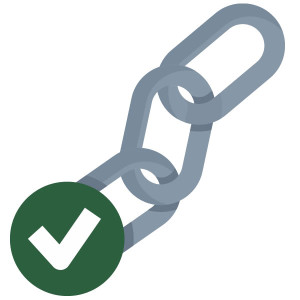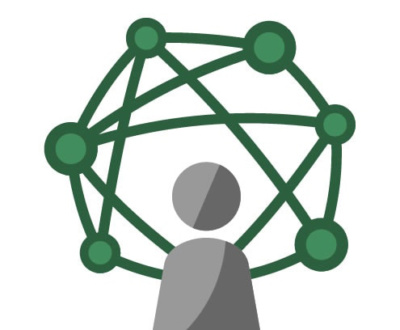Link building has been at the heart of SEO for so long, the title of this post may sound absurd. But this question has come up several times in different contexts this year. First lets look at some facts:
1. Organic link-building is hard.
Actively seeking out linking partnerships with other websites can be time-consuming and frustrating, with little or no obvious return from any one given link.
You are also competing with a seemingly endless supply of competitors all trying to build their own cross-linking campaigns to compete with yours.
2. There Vill Be Consequences!
Some types of link-building are now de-emphasized or even penalized by Google and other search engines.
Google has made great inroads into eliminating the fake ranking advantages given to link-farming-style directory websites and comment spammers. These behaviors that have cluttered up the web for humans and search engines for the last 15 years will hopefully start to die off.
3. The ROI is Tricky to Measure
With companies caught spending tens of thousands on search rank strategies, only to find their game plan identified as abuse by search engines, the ROI or gains made by investing in link-building campaigns appear more dubious than ever.
A quick bit of history may be in order here. Larry Page invented Page Rank as a big part of Google’s early ranking algorithm. This elegant idea that websites “voted” for each other through cross-linking was a terrific way to derive a website’s or web page’s authority on the larger web. This worked beautifully on the early internet, and along with several other key innovations, Page Rank led to Google’s dominance as the search engine of choice for an exploding world wide web of users; a dominance Google has yet to relinquish to any other player.
But two things happened very early on that forever changed the game.
First, as Page Rank showed to be a key component of how Google ranks websites, hobbyists and early eCommerce adopters started identifying ways that Page Rank could be manipulated to value nearly any page as very high, simply by generating linkages from external locations back to the target site. At first, this seemed like an amusing, but annoying side-effect of the genius of Google’s early algorithm.
The second thing that happened was the incredible growth the internet saw from the late 90’s to the early aughts. At a time when user growth and online purchasing were growing by double-digits on a monthly basis, it became clear how important it could be financially for a business to rank well in Google search results.
So we have the get-rich-quick insanity of the early tech boom, coupled with an algorithm that more and more people claimed to have “cracked”, and we start to see the runaway nature of these manipulative tactics. It may only be my own rusting memory, but it seemed to me at the time of the last tech bubble collapse, the frenzy for shrinking (not really, but apparently) internet dollars caused a colossal explosion in these shady tactics. Suddenly the lure of these “Guaranteed Top Spot in Google Search” emails was too much to pass up for businesses unsure about their future in this more and more digital age.
And so the gears of capitalism turn, not always moving in the “correct” direction or giving people the “right” incentives.
And the web started to suck a little.
At least searching for content started to suck.
As a content and code developer, my searches sometimes take me into the backwaters of the search engine game. Searching for specific error conditions or the syntax of a dying programming language can be extremely aggravating compared to shopping for “cheap insurance”. This made some of these manipulative tactics more acute in my search results than even normal searchers might have experienced.
But I digress.
As I’ve said before, if your website search engine results were propped up by external links of questionable quality, and you vanished from search results, it’s actually a good thing!
Maybe not for your website, but for the internet and for unfettered searching! Sorry.
“OK”, you say, “thanks for the history lesson, but are you going to answer your own question?”
Oh! I like history…
Link building! Should it even be done?
The short answer: absolutely.

So what is a good quality link? This will vary as much as businesses vary, but in general terms, there are two pointers:
1. Find influential websites in your industry
Most of us know who the kings are. Chances are your customers also are aware of these trusted authorities. It may seem obvious that ESPN is among the Top 3 most trusted authorities on most sports topics. If you have a sports-related product/blog/website, while it’s unlikely you will get a link back to your website from the likes of ESPN, the #8 authority for sports may be looking for partnerships. If their website and yours have semantic congruences, and logical ways in which partnering makes sense, it will benefit both search engine ranking and human users, who may be on one site or the other, and benefit from that additional resource.
OK, but how the heck do you determine who the #8 guy is? The good news there is that there are terrific tools available for assessing links, authority and much more. I recommend starting with BuzzSumo if you are trying to establish who in your industry has the most content clout online. BuzzSumo can show a breakdown of most-shared content across your selected keyword combination. Here again, you may not make any progress trying to swap links with the number one player in your niche. But BuzzSumo will help you assess valid authority in your niche, nonetheless, and assists you in finding relevant partnerships worth your time and effort to pursue.
2. Engage in Social Media with users containing overlapping expertise with yours.
Chances are pretty good, that if you’ve done your homework, when you retweet a link or share a blog post from a relevant partner in your industry, you are doing your own followers a true service. If your followers appreciate the content of these researched partnerships, your partner’s followers are likely to appreciate yours as well.
Tools like SproutSocial can help you take a look at your Social Media picture, and where you can be engaging other users with hot trending topics, and building meaningful networks of content sharing here as well.
What you may have noticed about both of these pointers, is the human-heavy descriptions of benefits. The point here is to build your link network for genuine authority with human users, and the search engines will follow.
If links to your website are found on garbage link directories, these links may harm your overall ranking score, while at the same time, ranking scores will still regard high-quality links as one of the key factors in ranking.
So link-building will not go away any time soon. But poor-quality link building, comment spamming, and all of that link directory garbage is dying fast and with a little luck, could soon be gone forever.
Good riddance.
Bill lives and plays in Fort Collins, Colorado. After a fulfilling career for a Fortune 50 company, Bill founded Colorado Web Design in 2012 with a passion for creative digital solutions for business. Bill likes to manage a wide variety of projects and tasks for his clients in the digital space. The creative elements of website design, application design, and marketing are enough to keep anyone busy and engaged, but wiping the slate clean over and over at the start of new projects comes with its own challenges. "I like to start with really good client communication sessions. The rest is easy if you get started in the right way." He plays tennis, bikes, and hikes and then undoes all of that with too much delicious food and TV watching.
About Colorado Web Design
We've been building websites for Colorado businesses since 2002. We are a small team of dedicated individuals who love the challenge of each new marketing project. We live and play in northern Colorado.












